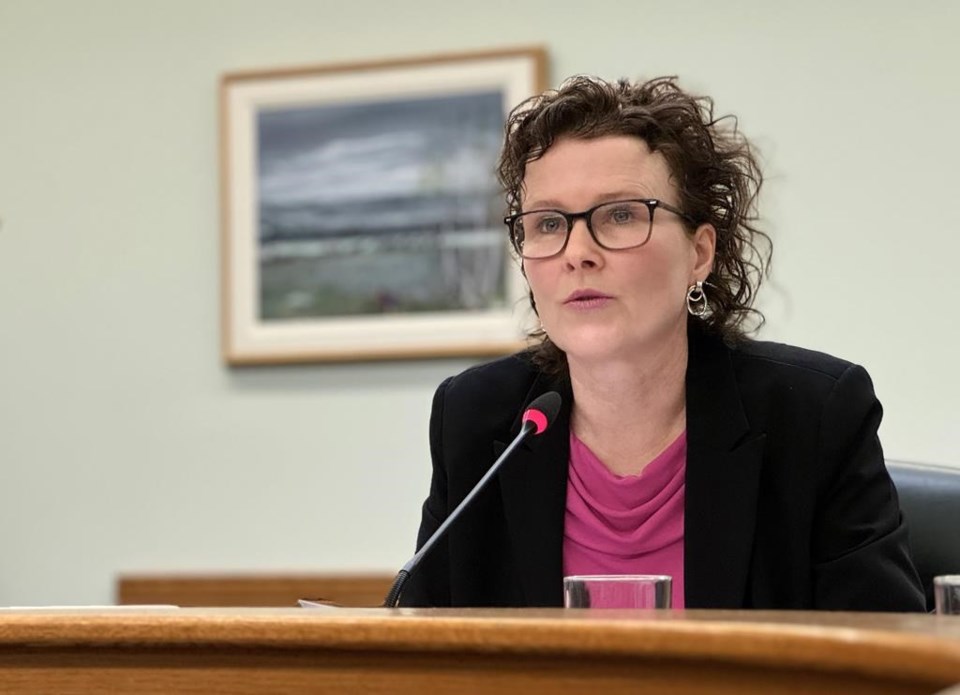REGINA — Saskatchewan's auditor says wait times have spiked for people needing brain and spine surgeries, and there has been a sharp increase in detox clients reporting they are homeless.
Tara Clemett said in her report released Wednesday there are 722 people in Saskatchewan waiting for a neurosurgeon, with one-third waiting more than a year.
She said the wait-list for spine surgery has more than doubled in Regina. There were 321 people waiting in March 2020, but that has grown to 765 as of April. The wait-list in Saskatoon has stayed the same with 268 people.
While urgent patients are usually seen sooner, most priority patients are waiting between four and 12 months, much longer than the recommended six weeks.
Her report said people who wait longer for surgery are at greater risk of worsening health conditions.
"The ministry has not improved mounting provincial wait-lists for neurosurgery services," she told reporters.
Clemett recommends the province review how it refers patients to neurosurgeons, suggesting it encourage doctors to initially refer patients to spine pathway clinics.
If patients go through the clinics, they may have a shorter wait to get a consultation or surgery, she said.
Staff at the clinics do tests to prep patients for surgery or determine if it's needed. If surgery isn't needed, they can provide alternative treatment, such as physiotherapy.
"It's not necessarily just about doing more surgeries, but it's about doing surgeries better," Clemett said.
"That can potentially reduce wait-lists and overall costs to the health-care sector."
Her report said Saskatchewan needs to figure out how many staff it needs to meet demands.
It also needs to determine how to best schedule surgeons and whether there's capacity for some to do more.
"(They) need to be clear on how many are doable, what is their expectations and monitor whether or not they can hit that mark," she said.
Saskatchewan pays surgeons either through fee-for-service or by contract.
Clemett's report says the paid fee-for-service had triple the amount of patients, but there were twice as many operating room cancellations.
"These differences suggest some neurosurgeons may have too many patients, while other neurosurgeons may have capacity to treat more patients," she said.
Clemett suggested the province also look at implementing an open flex day in Regina. Saskatoon has a practice where it leaves a day open for urgent and emergent patients.
The auditor found long waits also continue to plague mental health patients in Prince Albert, about 140 kilometres north of Saskatoon.
Clemett's report said 249 youth in the city have been waiting for psychiatric service. One youth with severe symptoms has been waiting more than four months and another with moderate symptoms has been waiting more than four years.
The number of detox patients reporting they're homeless has also nearly tripled.
Clemett reported in 2017 there were 800 instances of detox patients reporting they were homeless. That has grown to 2,300.
She said housing options have not improved in Saskatchewan's third largest city.
"That's definitely an area where we've highlighted that the Saskatchewan Health Authority hasn't done enough yet, and has to continually do more work," she said.
Saskatchewan's health-care system has for years been dealing with problems related to mental health and urgent care, including short staffing.
The province has said it plans to hire more mental health staff and build additional detox beds.
It also plans to hire more hospital staff and procure more long-term care spaces to address overcapacity.
Clemett has previously reported it anticipated Saskatchewan will be short more than 2,000 hard-to-recruit positions over the next five years.
Health Minister Everett Hindley told reporters the provincial head of surgery is working to adopt some of the auditor's recommendations, though he did not offer specifics.
"Hopefully we'll have a resolution to a number of these recommendations. Hopefully, fairly soon," Hindley said.
In her report on Wednesday, Clemett provided an update on a faulty payroll system for health-care staff that the province has yet to implement.
She said the payroll program, known as the Administrative Information Management System, is now expected to cost $240 million, three times more than the initial $80-million estimate.
Saskatchewan paused implementing the system last year after staff reported scheduling and payroll errors.
Hindley said additional IT work will likely result in increased costs for the program.
"IT is not free, it doesn't come cheap," he said.
Hindley anticipates the payroll system to be rolled out again sometime next year.
This report by The Canadian Press was first published Dec. 6, 2023.
Jeremy Simes, The Canadian Press



